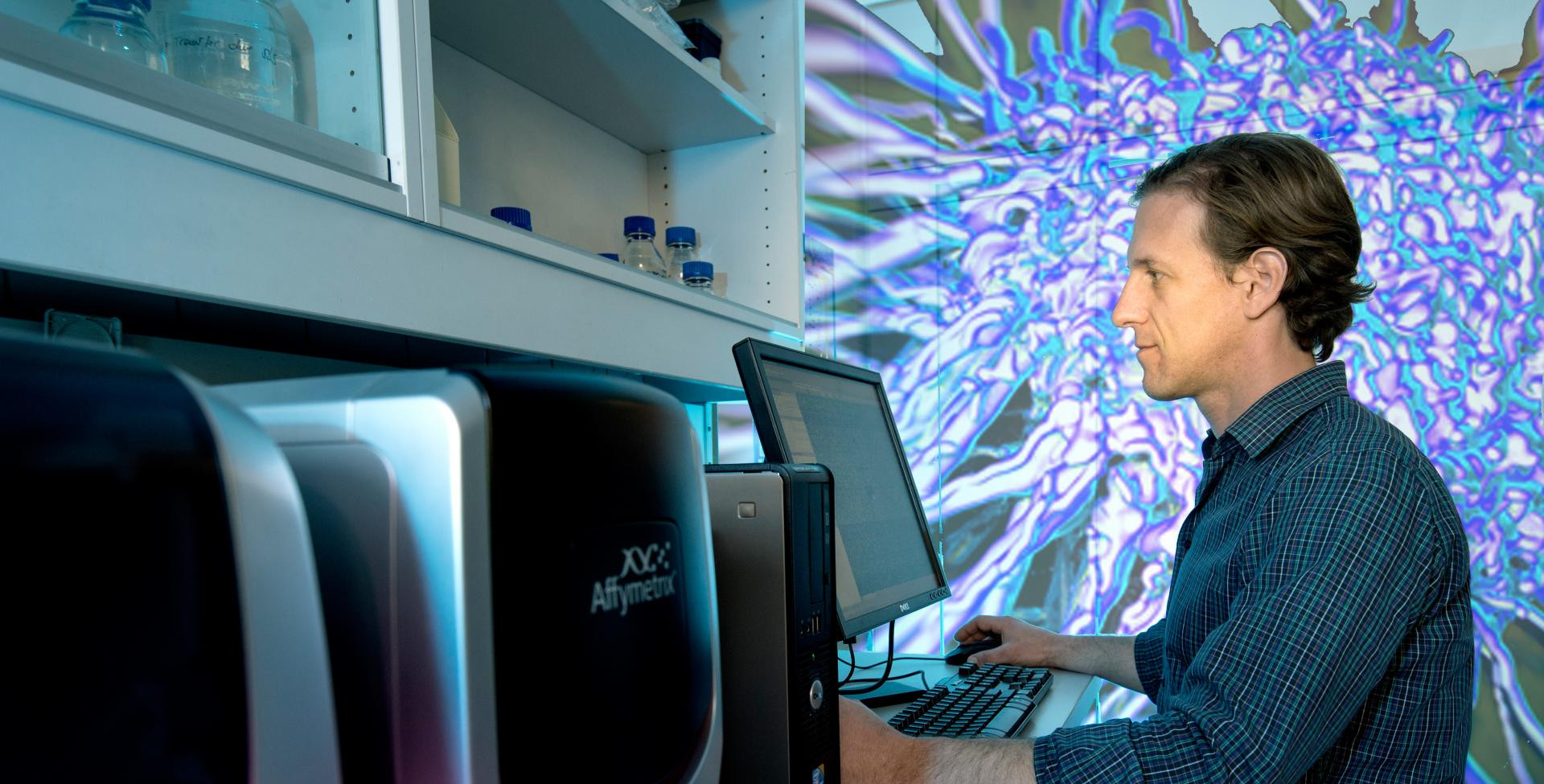
Cancer is a leading cause of death worldwide. Despite considerable progress in the treatment of cancer patients, the incidence and death toll are globally increasing, urgently calling for intensified research to better understand the molecular basis of this disease and to identify improved strategies and drugs for personalized therapy.
As partner within national and international research consortia and active founding member of the Cancer Cluster Salzburg (CCS), the Aberger lab applies a combination of in vivo cancer models and state-of-the art cellular, molecular and systems biology approaches, to decipher druggable molecular pathways such as Hedgehog/GLI signaling and to unravel novel molecular targets for cancer therapy. A central research focus of the group is on the analysis of pathways controlling the malignant potential of cancer stem cells (CSC), a small subpopulation of tumor cells responsible for cancer growth, metastasis, drug resistance and disease relapse. In particular, the lab tries to understand the interaction of CSC with the tumor microenvironment including the immune system.
The core competence of the group is the functional analysis and cross-talk of oncogenic Hedgehog signaling and GLI transcription factors with other cancer pathways in malignant cells and the tumor environment. By bringing together the expertise of molecular tumor biologists and clinicians within the Cancer Cluster Salzburg, the Aberger group aims to translate preclinical studies to clinical application for better therapeutic outcome.
As major contributions, the Aberger lab has recently deciphered oncogenic signals and novel drug targets responsible for malignant disease progression. In collaboration with partners from the biotech industry, the group works on the development of novel drugs for improved anti-cancer (immuno)therapies, including innovative inhibitors of malignant cancer stem cells.




